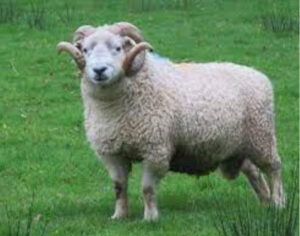Please have a read through the following notes; you may be surprised by some of these common causes of toxicity in pets and of what you need to keep out of reach!
Drug poisonings
- Ibuprofen and other anti-inflammatories. This widely available medicine can cause gastric ulceration in dogs at surprisingly low doses and kidney damage at higher doses. Diclofenac is a similar drug with similar adverse effects.
- Paracetemol is particularly dangerous to cats as they convert it into a toxic metabolite which rapidly reduces the ability of the red blood cells to carry oxygen. Even low doses can be fatal so please make sure that you do not administer any human pain killers to your pets and store all medicines out of the reach of pets. It can however be given to dogs at safe doses but only under veterinary supervision.
Pesticides
- Rat bait. Rodenticides are frequently scavenged by dogs, most cause clotting and bleeding problems and may require prolonged vitamin K therapy and sometimes even blood transfusions. Poisoning can also occur as a result of the dog eating rats or mice killed by the bait. The common rat baits which cause clotting and bleeding problems contain drugs such as bromadiolone, difenacoum or brodifacoum. Their effects are frequently delayed and this often means we do not see the animal in time to prevent serious ill health and even death.
- Slug pellets. One slug bait contains Metaladehyde as the active constituent of slug pellet is a frequent cause of fatalities in dogs as the pellets prove very attractive. Slug pellets cause tremors followed by convulsions. We have to manage these cases by prolonged sedation or anaesthesia as there is no antidote. Animals must be kept away from recently treated ground.
- Ant killers often contain borax, this is not a highly poisonous substance but as ant killer is usually a sugary substance dogs and cats may ingest large quantities and this can result in intestinal irritation and excessive salivation.
Other causes of toxicity
- Flea products should only be used as directed, unfortunately it is a frequent occurrence for dog treatments containing permethrins to be put on cats or for excessive amounts to be applied. Clinical signs usually seen in cats and dogs include twitching, diarrhoea and even fitting, and can be fatal, especially in cats; the effects are usually very rapid.
- Adder bites in dogs tend to occur in summer and early autumn. Be aware of this possibility especially when walking dogs in wooded areas or on the moor. Swelling is seen within 2 hours of the bite often followed by salivation, vomiting, depression, lameness and collapse. A specific antivenom is sometimes available and intensive supportive treatment may be required.
Another poisoning associated with the summer months is that caused by blue green algae in stagnant water or ponds with blooming algae in windless conditions.
Food –related toxicities
- Chocolate is potentially very dangerous to dogs, dark chocolate, cocoa powder and cocoa beans especially so. The high levels of theobromine in cocoa can be fatal at as little as 6 gram of dark chocolate per kilogram of your dogs weight so even if your dog has eaten just a small amount of chocolate please give us a call. The signs of toxicity include vomiting, hyperactivity, wobbliness and a rapid heart rate. In severe cases animals go on to develop convulsions and an irregular heart beat. It is best to see the animal as soon as possible after ingesting the chocolate so that we can empty the stomach and give supportive treatment.
- Alcohol. Even the effects of small doses of alcohol can be significant in pets, all exposures should be considered serious. Wobbly, lethargic, vomiting, disorientation and vocalization are the first signs of alcohol consumption! These can progress to more serious signs.
- Yeast dough left to rise before baking may lead to obstruction of the stomach or alcohol intoxication, as the dough expands it produces carbon dioxide resulting in bloating, vomiting and pain.
- Onions, leeks and garlic when crushed or chewed can release a substance toxic to dogs and cats which damages the red blood cells causing anaemia with weakness, depression, salivation and diarrhoea.
- One of the species of avocado is toxic to rabbits, rats and mice as well as sheep, horses and cattle. Birds and fish are also affected so no feeding avocado to the chickens.
- Grapes and raisins can cause severe kidney damage in dogs, fruit cake and other dishes with a high density of dried fruit are a particular risk. They do not know for sure what the toxin is in grapes and some dogs react very badly whilst others show no signs of poisoning. If you think your dog has eaten a lot of grapes or raisins please bring them to the surgery as soon as possible so we can give them fluids as soon as possible.
- Xylitol is used as sugar substitute or low calorie sweetener; it is often used in products intended for diabetics and in sugarless gums and dental products. Dogs, unlike humans, do not exhibit an insulin response to xylitol and so can suffer from hypoglycaemia (low blood sugar) causing lethargy, weakness and seizures, these can be fatal and need immediate treatment.
Poisonous plants
- Daffodil bulbs can cause serious toxicity, this is usually rapid in onset with vomiting, diarrhoea and a painful abdomen which can progress to collapse. Rapid treatment required. Make sure daffodil bulbs are stored in sealed containers prior to planting and keep an eye on dogs when digging.
- Conkers, keep an eye on your dogs in the autumn, as ingestion of conkers can cause problems in two ways. They can from a physical obstruction in the intestine and they are release poisonous glycosides. The effects are usually seen within 6 hours of eating conkers and include vomiting, discomfort and thirst.
- Acorns, from the oak tree can cause problems in dogs as they contain a substance called tannic acid. In most cases this will just cause stomach irritation and pain, but if a lot of acorns have been eaten or the dog keeps eating acorns it can cause damage to the kidneys and liver. Poisoning cases are more commonly seen in cattle sheep or horses.
- Other garden plants, for example, pyracanthas, holly, ivy, mistletoe, and rowan cause stomach and intestinal upsets and may require emptying of the stomach if large quantities are ingested.
Household plants
Lilies are every very poisonous to very toxic to cats, any part of the flower or plant when eaten can cause vomiting, anorexic and depression initially and cause serious damage to the kidneys which is life threatening and need to be seen as soon as possible after eating/exposure to give treatment to help protect the kidneys.




